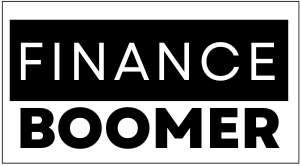How to Get a Business Line of Credit with Bad Credit in Australia
Getting a business line of credit in Australia if you have a bad credit, is tough but not impossible.
In this blog, we shall discuss what a business line of credit is and the strategies you can take to improve your chances of getting one even with a bad credit score.
What is a Business Line of Credit?
According to British Business Bank, a business line of credit is a flexible loan which allows businesses borrow money up to a certain amount when needed. It could be taken as a lump sum or in smaller amounts up to the agreed amount.
Business line of credit could be secured in which you will need a collateral to apply or unsecured which requires no collateral. It could also be revolving or have a fixed end date.
If your business needs a cash reserve to sort out unexpected expenses and contingencies like emergency, then a business line of credit is a great option.
One major advantage of business line of credit is that you can use it for different purposes not just a specific purpose.
So with it you can have quick access to cash for your working capital expenses such as paying employee salaries, paying rent and inventory.
What Does It Mean to Have a Bad Credit?
Having a bad credit means your business did not manage credit well in the past resulting in a low credit score.
So long as you have taken a credit in the past, your business has a credit history. Missing payments, late payments or inability to repay your credit card debt in full will negatively impact your credit score.
Also, if you exceed your credit limit or you became bankrupt in the past, your credit score will reduce greatly. They will see you as a high risk and lenders will not be willing to lend you money.
Steps to Getting a Business Line of Credit with a Bad Credit in Australia
Small business owners face a lot of challenges getting loans approved from traditional lenders and banks. This becomes even more difficult with a bad credit.
Finances and other alternative lenders are more willing to take risks with smaller businesses even with a poor credit history.
In Australia and other places, you may still get a business line of credit with a bad credit, but you have few lenders willing to borrow you.
There are loans reserved specifically for those with bad credit known as bad credit business loans.
Here are some steps you can take to improve your odds of getting a business line of credit with bad credit.
Also Read: Different Types of Business Loans you Should Know in Australia
Ensure to update your business plan
Your business plan is that document that depicts how you will grow your business on a long term basis.
If you already have a business plan, you need to update it and make it more rich. Focus more on the executive summary, market research, your budget and future revenue. Share the goals your business is set to achieve and the performance measures to measure that.
Choose the right lender
Lenders have different credit requirements depending on the level of risk they can take. When choosing a bad credit lender to give you a business line of credit, these are some things you should check for.
Compare different bad credit lenders
Some lenders offers some features like early payment discounts, flexible repayment terms etc. Go with the lender that is fits your needs perfectly.
Consider the minimum criteria for applying
Lenders have minimum criteria you must meet before they borrow you money. The criteria may include factors such as annual revenue, personal credit score, how long you have been in business. Make sure you meet this minimum criteria before applying.
Compare interest rates and fees
Different lenders charge differing interest rates and fees. Origination fees differ for different lenders of some business credit. Compare these interest rates and fees and go for the best offer.
Prequalify to know the amount you can get
Some lenders allow you to do a soft credit check to know the amount you will qualify for. You can do this for different lenders and choose the lender that offers you the highest amount.
Make your finances strong
Apart from checking your credit history to know how you have managed past loan, lenders also check your business finances. If you can show very strong financial history, then you can be qualified.
Lenders set minimum criteria for annual revenue, time in business, your cash flow and current debts.
Find a co-signer
A co- signer is that person who signs the loan contract agreeing to repay the loan if you the business owner is unable to repay.
Getting a co- signer will increase your chances of qualifying for a business line of credit with a bad credit. You may also get a lower interest rate because the lender will also consider the co- signer’ s credit history in addition to yours.
Improve your credit score
If you currently have a bad credit and you are looking to get a business line of credit in the future, then start building your credit score. Having a good credit score will qualify you for a loan with favourable interest rates and terms.
You can use the strategies below to improve your credit score.
- Show strong annual revenue
Your business finances apart from your credit history plays a role in determining if you will be approved for a credit or not.
- Showing a very strong flow of revenue and ensuring that there is no recent default or missed vendor payment may qualify you for a loan.
- Some lenders also consider how long you have been in business and the stability of your finances over the years in business.
Conclusion
If you have a bad credit in Australia, you may still be able to get a business line of credit.
Follow one or more of the strategies above to improve your chances of qualifying for a business line of credit.
FAQs
What happens if you have a bad credit score in Australia?
Having a bad credit score in Australia do affect loans or credit you apply for.
A bad credit score in Australia can have several consequences, impacting your financial situation in various ways such as:
- Difficulty in Obtaining Loans: With a bad credit score, you may find it challenging to qualify for loans, credit cards, or even renting an apartment. Lenders consider individuals with low credit scores as higher risks, making it harder to secure financing.
- Higher Interest Rates: If you manage to get approved for a loan with a bad credit score, you are likely to face higher interest rates. Lenders may charge more to offset the perceived risk of lending to someone with poor credit history.
- Loan Rejection: Your loan and credit applications may be rejected due to a bad credit score, limiting your access to financial products and services.
- Difficulty in Renting: Landlords and property managers often check credit scores when considering rental applications. A bad credit score can make it challenging to secure a rental property.
-
Limited Bargaining Power:
With bad credit, you may have limited bargaining power when dealing with creditors. This can result in less favorable terms and higher costs for loans and other financial products.
- Higher Down Payments: When applying for a mortgage with a bad credit score, lenders may require a higher down payment, typically around 15% to 20%. This can make homeownership more challenging and expensive.
- Predatory Lending: Individuals with bad credit may be more susceptible to predatory lending practices, where lenders charge high-interest rates or impose unfavorable terms after being turned down by traditional lenders.
- Limited Financial Options: Bad credit can limit your financial options and make it harder to access credit when needed. It can also impact your ability to negotiate better terms and rates for loans and credit cards.
In summary, having a bad credit score in Australia can lead to higher costs, limited access to credit, and challenges in securing loans and rental properties. It is essential to take steps to improve your credit score and financial habits to mitigate these negative consequences.
How long does bad credit stay on record Australia?
Bad credit in Australia can stay on record for varying periods depending on the type of negative credit event.
Here is a tabular representation of how long bad credit stay on record in Australia:
| This type of information | Stays on your credit report for |
|---|---|
| Default | 5 years |
| Financial hardship information | 1 year |
| Repayment history | 2 years |
| Serious credit infringement | 7 years |
These durations are based on the Comprehensive Credit Reporting (CCR) system used in Australia, which includes both positive and negative credit information.
Can you get a line of credit with bad credit?
Yes! It is possible to get a line of credit with bad credit, but the interest rates on lines of credit for bad credit can be as high as 47.42%.
It is also important to note that options are usually limited and the terms may not be favorable.
The key is to carefully review the terms, fees, and interest rates of any line of credit offered to you with bad credit. Avoid high-cost options like payday loans that can lead to a cycle of debt. Building credit first may provide better options in the long run.
Does bad credit affect Australian visa?
Bad credit history does not directly affect Australian visa applications, except in specific cases.
Here are the key points from online sources:
- No Impact on Visa Application: A bad credit history does not affect an immigration visa application in Australia. The financial obligations you have in your native country are not considered in your visa application.
- Business Skills Visa: The only time a bad credit history can affect a visa application is if you are applying for a business skills visa, where you need to show a certain number of years of business experience.
- Credit Rating in Australia: Your credit rating in your native country is not converted to the Australian currency, and it does not affect your credit rating in Australia. You start anew in Australia, and your credit history is not considered.
- Debt Declaration: When applying for a visa, you only need to declare debt to the Commonwealth (Australian Government), not to banks or other financial institutions. This means that debts incurred prior to 18 November 2017 will not be taken into account.
- Credit Score Improvement: You can improve your credit score by paying bills on time and reducing debt. This can help you qualify for better loan terms and interest rates in Australia.
In summary, bad credit history does not directly affect Australian visa applications, except for business skills visas. However, it may impact your credit rating in Australia and your ability to secure loans or mortgages.
Bad credit business loans guaranteed approval
There is no guaranteed approval for bad credit business loans.
There is no such thing as a guaranteed approval for bad credit business loans. Lenders will always assess the risk and may reject applications or offer higher interest rates and fees.
However, there are alternative lenders and funding options available:
Alternative Lenders: Independent lenders and alternative lending platforms offer more flexible options for bad credit business loans. These lenders consider factors beyond credit scores, such as business plans and revenue projections.
Also, consulting an accountant can help in preparing a detailed business plan and financial projections, which can strengthen a loan application. They can also assist in managing financial obligations and improving credit.
It is crucial to carefully evaluate the terms and conditions, improve your credit score over time, and seek accounting support to ensure the best possible outcome for your business.
Read Also: Understanding How Merchant Cash Advance Loans Work in Australia
Can you take over a business with bad credit?
Taking over a business with bad credit can be challenging, but it is not impossible.
Here are some key points to consider:
- Business Credit Score: The business credit score of the existing business will likely affect your ability to secure financing for the takeover. A bad credit score can make it difficult to obtain loans or other forms of financing.
- Financial History: The financial history of the business, including late payments, collection accounts, or bankruptcy, can also impact your ability to secure funding.
- Alternative Lenders: Alternative lenders and non-traditional financing options may be more willing to provide funding for a business takeover with bad credit. These lenders often consider factors beyond credit scores, such as business plans and revenue projections.
- Collateral: Providing collateral, such as assets or property, can help secure funding for a business takeover with bad credit. This can be a high-risk strategy, as the business owner may lose assets if they default on the loan.
Government Grants:
Government grants and subsidies can be available for businesses with bad credit. These grants are often targeted towards specific industries or community groups and can provide non-repayable funding for business operations.
- Invoice Financing: Invoice financing, such as invoice factoring, can be used to monetize outstanding invoices and provide immediate funding for the business takeover. This is a high-risk strategy and should be used with caution.
- Business Plan: A solid business plan is essential for securing funding for a business takeover with bad credit. The plan should include a detailed vision and mission, financial projections, and a clear strategy for improving the business’s financial situation.
- Credit Improvement: Improving the business’s credit score over time can help reduce the risk and cost of borrowing. This can be achieved by maintaining good financial habits, paying bills on time, and reducing debt.
In summary, taking over a business with bad credit requires careful planning and consideration of alternative financing options. It is crucial to understand the financial situation of the business and develop a solid business plan to secure funding and improve the business’s financial situation over time.










